聖アウレリウス・アウグスティヌス 救済の視点 新プラトン主義とキリスト教思想の融合
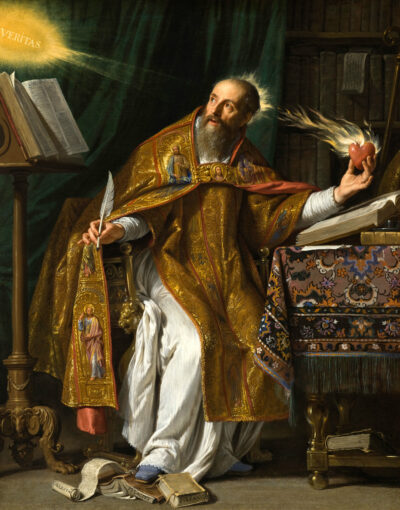
Saint Aurelius Augustine: Salvation Perspective – Integration of Neoplatonism and Christian Thought
イントロダクション
聖アウグスティヌスは、キリスト教思想と新プラトン主義を組み合わせた教父として有名です。
彼は人間の罪と神の救済に焦点を当てた教えを持っており、人間の自由意志と神の恩寵の関係についても深く考察しました。
彼の思想は中世の哲学や神学に大きな影響を与えただけでなく、現代の信仰や倫理にも多くの示唆を与えています。
彼の教えを通じて、私たちは自己の内面を探求し、神の愛と救済の力を受け入れることができます。
聖アウグスティヌスの思想について詳しく知りたい方は、ぜひこの記事をご覧ください。
Summary
Saint Augustine is renowned as a Father of the Church who combined Christian thought with Neoplatonism.
He emphasized teachings focusing on human sin and God’s salvation, delving deeply into the relationship between human free will and divine grace.
His philosophy not only greatly influenced medieval philosophy and theology but also provides significant insights into contemporary faith and ethics.
Through his teachings, we can explore our inner selves and embrace the power of God’s love and salvation.
For those interested in learning more about the philosophy of Saint Augustine, this article is a must-read.
聖アウレリウス・アウグスティヌス(354年-430年)は、キリスト教神学と西洋哲学の両方に大きな影響を与えた人物です。
彼の思想は、古代ローマ帝国の崩壊期において、キリスト教の教義を理論的に体系化し、後世の哲学者や神学者に多大な影響を与えました。
アウグスティヌスの著作は、彼の内面的な葛藤や信仰の探求を反映しており、『告白』や『神の国』など、今日でも広く読まれています。
彼の哲学は、プラトン主義とキリスト教の教義を融合させたものであり、特に人間の自由意志や神の恩寵についての議論が重要視されています。
本記事では、アウグスティヌスの哲学と神学の主要なテーマを探り、彼の思想がどのように形成され、どのように発展していったのかを詳しく見ていきます。
Introduction
Saint Augustine of Hippo (354-430 AD) was a figure who greatly influenced both Christian theology and Western philosophy.
His ideas played a crucial role in theoretically systematizing Christian doctrine during the decline of the Roman Empire, leaving a profound impact on later philosophers and theologians.
Augustine’s works reflect his inner struggles and quest for faith, with works like “Confessions” and “The City of God” remaining widely read today.
His philosophy is a synthesis of Platonism and Christian doctrine, with discussions on topics such as human free will and divine grace being particularly emphasized.
In this article, we will explore the main themes of Augustine’s philosophy and theology, delving into how his ideas were formed and evolved over time.
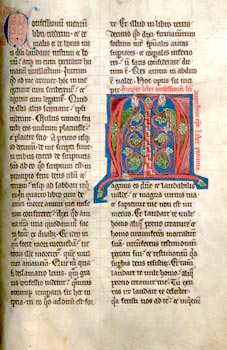
マニ教を批判したアウグスティヌスの書簡
Augustine’s Epistle Criticizing Manichaeism
聖アウレリウス・アウグスティヌス:一覧
聖アウレリウス・アウグスティヌス(354年-430年)は、古代キリスト教の教父であり、彼の思想は後のキリスト教神学に大きな影響を与えました。
アウグスティヌスは北アフリカのタガステに生まれ、青年期にはマニ教に傾倒しましたが、後にキリスト教に改宗します。
彼の著作『告白』は自伝的要素が強く、神への帰依と自己探求の過程を描いています。
また、『神の国』では、地上の国と神の国の対比を通じて、キリスト教的な歴史観を展開しました。
彼の思想は、カトリック教会だけでなく、聖公会やルーテル教会、正教会など多くのキリスト教派においても重要視されています。
アウグスティヌスの影響は哲学にも及び、特に自由意志と恩寵の関係についての議論は、中世のスコラ哲学や近代の哲学者たちにも影響を与えました
彼の母モニカも敬虔なキリスト教徒であり、彼女の祈りがアウグスティヌスの改宗に大きな役割を果たしたとされています。
Saint Augustine of Hippo: Overview
Saint Augustine of Hippo (354-430 AD) was an influential figure in early Christianity, and his ideas had a significant impact on later Christian theology.
Born in Tagaste, North Africa, Augustine was initially drawn to Manichaeism during his youth but later converted to Christianity.
His work “Confessions” is characterized by its autobiographical elements, detailing his journey of devotion to God and self-exploration.
Moreover, in “The City of God,” Augustine developed a Christian view of history through the juxtaposition of the earthly realm and the kingdom of God.
His philosophy is highly regarded not only within the Catholic Church but also in various Christian denominations such as the Anglican, Lutheran, and Orthodox Churches.
Augustine’s influence extends to philosophy as well, particularly in discussions concerning the relationship between free will and grace, which impacted medieval Scholasticism and modern philosophers.
His mother, Monica, was also a devout Christian whose prayers played a significant role in Augustine’s conversion.
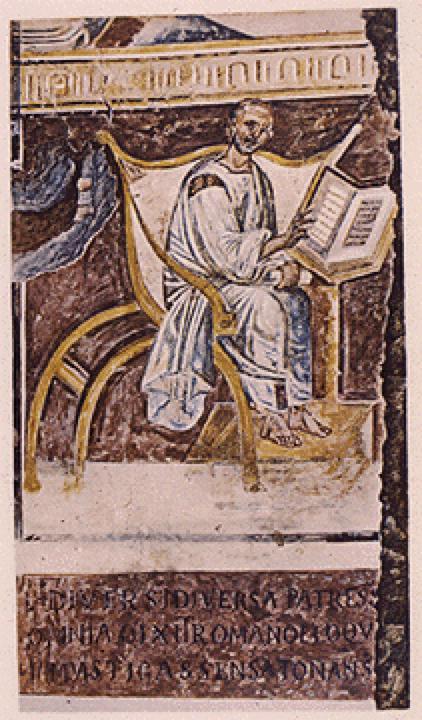
Augustine in the Lateran Basilica
アウグスティヌスの人生:詳細
アウグスティヌスは354年、北アフリカのタガステ(現在のアルジェリア)で生まれました。
彼の母モニカは熱心なキリスト教徒であり、アウグスティヌスに大きな影響を与えました。
若い頃、彼は哲学と修辞学に興味を持ち、カルタゴで学びましたが、放蕩生活を送りました。
ミラノでの出会いが彼の人生を変え、386年にキリスト教に改宗しました。
彼の著作『告白』は、自身の回心と信仰の旅を詳細に記録しています。
395年にはヒッポの司教となり、教会の教義確立に尽力しました。
彼の思想は『神の国』や『三位一体論』に結実し、中世のキリスト教神学に大きな影響を与えました。
430年、ヴァンダル族の侵攻中に亡くなりましたが、彼の教えは今も多くの人々に影響を与え続けています。
彼の人生と業績は、キリスト教史において非常に重要な位置を占めています。
Augustine’s Life: In Detail
Augustine was born in 354 AD in Tagaste, North Africa (present-day Algeria).
His mother, Monica, was a devout Christian who had a significant influence on Augustine.
In his youth, he developed an interest in philosophy and rhetoric, studying in Carthage but leading a life of dissipation.
His encounter in Milan transformed his life, leading him to convert to Christianity in 386 AD.
His work “Confessions” meticulously chronicles his journey of conversion and faith.
In 395 AD, he became the Bishop of Hippo and worked tirelessly to establish Church doctrines.
His ideas culminated in works like “The City of God” and “On the Trinity,” which had a profound impact on medieval Christian theology.
In 430 AD, during the Vandal invasion, he passed away, but his teachings continue to influence many to this day.
His life and accomplishments hold a significant place in Christian history.
アウグスティヌスの思想:解説
アウグスティヌスは4世紀末から5世紀初頭にかけて活躍したキリスト教の教父であり、彼の思想は後のキリスト教神学に大きな影響を与えました。
彼の代表的な著作『告白』は、自身の回心と神への愛を描いた自伝的作品で、深い内省と哲学的探求が特徴です。
また、『神の国』では、地上の国家と神の国という二つの対立する都市を描き、キリスト教的な歴史観と政治哲学を展開しました。
アウグスティヌスの思想の中核には、人間の原罪と神の恩寵の必要性があり、彼の自由意志論は中世のスコラ哲学に多大な影響を与えました。
特に、彼の「恩寵は人間の自由意志を超越する」という考えは、後のプロテスタント改革者たちにも受け継がれました。
彼の思想は、カトリック教会だけでなく、聖公会やルーテル教会など多くのキリスト教派においても重要視されています。
アウグスティヌスの母モニカも聖人として崇められており、彼の人生と思想はキリスト教の歴史において欠かせない存在です。
Augustine’s Philosophy: An Overview
Augustine, a prominent figure in the late 4th and early 5th centuries, was a Christian father whose ideas profoundly influenced later Christian theology.
His seminal work “Confessions” is an autobiographical piece depicting his conversion and love for God, characterized by deep introspection and philosophical inquiry.
In “The City of God,” he contrasts earthly states with the kingdom of God, unfolding a Christian view of history and political philosophy.
At the core of Augustine’s thought lies the concept of original sin and the necessity of God’s grace, with his theory of free will exerting significant influence on medieval Scholastic philosophy.
In particular, his notion that “grace transcends human free will” was inherited by later Protestant reformers.
His ideas hold significance not only within the Catholic Church but also in many Christian denominations, including the Anglican and Lutheran churches.
Augustine’s mother, Monica, is also revered as a saint, making his life and philosophy indispensable to the history of Christianity.
「神の国」対「地の国」:アウグスティヌスの視点
アウグスティヌスは4世紀末から5世紀初頭にかけて活躍した古代キリスト教の教父であり、その思想は後世に多大な影響を与えました。
彼の代表作『神の国』は特に有名で、地上の国と神の国という二つの国の対比を通じて、信仰と世俗の関係を探求しています。
アウグスティヌスは、地上の国を人間の欲望や権力の象徴とし、神の国を愛と正義に基づく理想的な共同体と位置づけました。
彼の思想は、テオドシウス1世がキリスト教を国教とした時期の社会背景とも深く結びついています。
また、アウグスティヌスの母モニカも聖人として知られ、彼の信仰形成に大きな影響を与えました。
彼の思想はカトリック教会や聖公会、ルーテル教会など多くのキリスト教派に受け継がれています。
特に『神の国』は、宗教と政治の関係を考える上で今なお重要なテキストとされています。
“The City of God” versus “The Earthly City”: Augustine’s Perspective
Augustine, a prominent figure in ancient Christianity during the late 4th and early 5th centuries, exerted significant influence on subsequent generations.
His magnum opus, “The City of God,” is particularly renowned for exploring the relationship between faith and the secular world through the contrast of two realms: the earthly city and the city of God.
Augustine characterizes the earthly city as a symbol of human desires and power, juxtaposing it with the city of God, an ideal community based on love and justice.
His ideas are deeply intertwined with the socio-political context of the time when Emperor Theodosius I established Christianity as the state religion.
Furthermore, Augustine’s mother, Monica, known as a saint, played a significant role in shaping his faith.
His philosophical legacy has been inherited by various Christian denominations, including the Catholic Church, Anglicanism, and Lutheranism.
In particular, “The City of God” remains an important text for contemplating the relationship between religion and politics to this day.
自由意志:アウグスティヌスの理論
アウグスティヌスは4世紀から5世紀にかけて活躍した教父であり、自由意志の問題に深く取り組みました。
彼の著作『告白』や『神の国』では、人間の意志と神の恩寵の関係が詳述されています。
アウグスティヌスによれば、自由意志は人間にとって重要な要素であり、神の恩寵がなければ真の善を行うことはできないと説きました。
彼は特に「原罪」の概念を強調し、人間が生まれながらにして罪を背負っているとしました。
このため、自由意志は制約されていると考えましたが、それでも人間は神の恩寵を受け入れる自由を持つとしました。
彼の理論は中世のキリスト教神学に大きな影響を与え、後の思想家たちにも多大な影響を及ぼしました。
特に、トマス・アクィナスやマルティン・ルターなどがアウグスティヌスの理論を受け継ぎ、発展させました。
彼の思想は現代でも倫理学や神学の重要なテーマとして研究されています。
Free Will: Augustine’s Theory
Augustine, a prominent figure from the 4th to the 5th century, delved deeply into the issue of free will.
In his works “Confessions” and “The City of God,” he extensively discusses the relationship between human will and divine grace.
According to Augustine, free will is a crucial element for humans, yet true goodness cannot be achieved without God’s grace.
He particularly emphasizes the concept of “original sin,” suggesting that humans are born burdened with sin.
Therefore, while he believed that free will is constrained, he also asserted that humans still have the freedom to accept God’s grace.
His theory greatly influenced medieval Christian theology and continued to have a profound impact on later thinkers.
In particular, scholars like Thomas Aquinas and Martin Luther inherited and expanded upon Augustine’s theory.
Even today, his ideas remain important themes in the study of ethics and theology.
先行的恩寵:アウグスティヌスの解釈
アウグスティヌス(354年-430年)は、キリスト教神学の発展に大きな影響を与えた教父です。
彼の思想の中でも特に重要なのが「先行的恩寵」の概念です。
アウグスティヌスは、人間の救いは神の恩寵によってのみ可能であり、その恩寵は人間の行為や功績に依存しないと説きました。
彼の著作『告白』や『神の国』では、神の恩寵がいかに人間の意志を超えて働くかが描かれています。
特に『告白』では、自身の回心の過程を通じて、神の恩寵がどのように働いたかを詳細に記述しています。
また、アウグスティヌスは、ペラギウス主義との論争を通じて、先行的恩寵の重要性を強調しました。
ペラギウス主義は、人間の自由意志と努力によって救いが得られるとする考え方でしたが、アウグスティヌスはこれに強く反対し、神の恩寵がなければ人間は救われないと主張しました。
これにより、彼の思想はカトリック教会の教義形成に大きな影響を与えました。
アウグスティヌスの先行的恩寵の解釈は、後のキリスト教神学においても重要な位置を占め続けています。
個々の自由意志:アウグスティヌスの見解
アウグスティヌスは、4世紀末から5世紀初頭にかけて活動した教父であり、キリスト教の正統信仰の確立に大きく貢献しました。
彼の思想の中でも特に注目されるのが「自由意志」に関する見解です。
アウグスティヌスは、人間が神から与えられた自由意志を持つ存在であると考えましたが、その自由意志は原罪によって歪められていると主張しました。
彼の代表作『告白』や『神の国』では、個々の人間がどのようにして神の恩寵によって救われるかが詳述されています。
彼の見解によれば、人間は自らの意志で善を選ぶことができるが、その選択は神の恩寵によって初めて可能となるのです。
この考え方は、後の中世神学に大きな影響を与え、特にトマス・アクィナスやルターなどの思想家に受け継がれました。
アウグスティヌスの自由意志に関する見解は、現代においても倫理学や宗教哲学の重要なテーマとして議論されています。
Prevenient Grace: Augustine’s Interpretation
Augustine (354-430 AD) is a Church Father who had a profound influence on the development of Christian theology.
One of the most significant concepts in his thought is the idea of “prevenient grace.”
According to Augustine, human salvation is only possible through God’s grace, which does not depend on human actions or achievements.
In his works “Confessions” and “The City of God,” he depicts how God’s grace works beyond human will.
In particular, “Confessions” details how God’s grace worked through his own conversion process.
Moreover, Augustine emphasized the importance of prevenient grace through his debates with Pelagianism.
Pelagianism asserted that salvation could be attained through human free will and effort, but Augustine strongly opposed this, arguing that humans cannot be saved without God’s grace.
As a result, his thought greatly influenced the doctrinal formation of the Catholic Church.
Augustine’s interpretation of prevenient grace continues to hold a significant place in later Christian theology.
Individual Free Will: Augustine’s Perspective
Augustine, who was active from the late 4th to the early 5th century, made significant contributions to establishing orthodox Christian beliefs.
Among his philosophical ideas, his views on “individual free will” are particularly noteworthy.
Augustine believed that humans possess free will given by God, but this free will is distorted by original sin.
In his seminal works “Confessions” and “The City of God,” he elaborates on how individuals are saved through God’s grace.
According to his perspective, while humans can choose good by their own will, it is only possible through God’s grace.
This idea greatly influenced medieval theology, particularly thinkers like Thomas Aquinas and Luther.
Augustine’s views on free will remain a significant topic of discussion in contemporary ethics and religious philosophy.
アウグスティヌスの影響:検証
アウグスティヌスは、354年に北アフリカのタガステで生まれ、430年にヒッポで没したキリスト教の教父です。
彼の著作『告白』や『神の国』は、キリスト教神学における重要な位置を占めています。
特に『告白』は、自伝的要素を含みながらも深い哲学的・神学的考察を展開しています。
彼の思想は、原罪や恩寵といった概念を通じて、後のカトリック教会の教義形成に大きな影響を与えました。
また、彼はマニ教からキリスト教への改宗者であり、その過程での精神的葛藤や探求は、現代の信仰者にも共感を呼びます。
さらに、アウグスティヌスの影響は宗教の枠を超え、ルネサンス期や啓蒙主義の思想家たちにも及びました。
彼の思想は、時間の概念や自由意志の問題についても深い洞察を提供し、哲学史においても重要な位置を占めています。
アウグスティヌスの影響力は、単なる宗教的な範囲にとどまらず、広範な文化的・哲学的領域に及んでいます。
The Impact of Augustine: A Review
Augustine, born in 354 in Thagaste, North Africa, and died in 430 in Hippo, is regarded as a Church Father of Christianity.
His works, such as “Confessions” and “The City of God,” hold a significant place in Christian theology.
In particular, “Confessions,” while containing autobiographical elements, delves into profound philosophical and theological reflections.
Through concepts like original sin and grace, his ideas profoundly influenced the doctrinal formation of the later Catholic Church.
Moreover, as a convert from Manichaeism to Christianity, his spiritual struggles and quest resonate with contemporary believers.
Furthermore, Augustine’s influence transcended religious boundaries, extending to thinkers of the Renaissance and Enlightenment periods.
His thoughts offered profound insights into concepts of time and the problem of free will, holding a crucial position in the history of philosophy.
The influence of Augustine extends beyond merely religious spheres, reaching into a wide array of cultural and philosophical domains.
西欧・西方教会への影響
西欧・西方教会への影響は、4世紀末のテオドシウス1世によるキリスト教の国教化に大きく関係しています。
この時期に活動した聖アウグスティヌスは、特にラテン語圏で正統信仰の確立に貢献しました。
彼の著作『告白』や『神の国』は、後の中世ヨーロッパの神学や哲学に多大な影響を与えました。
アウグスティヌスは人間の意志と神の恩寵についての議論を深め、彼の思想はカトリック教会だけでなく、聖公会やルーテル教会、正教会にも受け継がれています。
彼の母モニカも聖人として崇められ、その影響は家族の信仰生活にも及びました。
特に『告白』では、彼の内面的な葛藤と信仰への転換が描かれており、多くの信者にとって共感を呼ぶ内容となっています。
このように、アウグスティヌスの思想は西欧の宗教的・哲学的な基盤を築く一助となり、今日までその影響は色褪せることなく続いています。
Influence on Western/Western Church
The influence on the Western Church is closely tied to the official adoption of Christianity as the state religion by Emperor Theodosius I in the late 4th century.
During this period, Saint Augustine, particularly active in the Latin-speaking regions, made significant contributions to the establishment of orthodox faith.
His works, such as “Confessions” and “The City of God,” wielded considerable influence on the medieval European theology and philosophy.
Augustine delved into discussions on human will and divine grace, and his ideas have been inherited not only by the Catholic Church but also by Anglicans, Lutherans, and Orthodox churches.
His mother, Monica, revered as a saint, exerted influence even on the family’s religious life.
Especially in “Confessions,” his internal struggles and conversion to faith are depicted, resonating deeply with many believers.
In this way, Augustine’s philosophy has been instrumental in shaping the religious and philosophical foundations of Western Europe, and its influence continues unabated to this day.
東方教会への影響
東方教会への影響を語る上で、特に重要なのは聖アウグスティヌスの思想です。
彼は354年に北アフリカのタガステで生まれ、彼の著作『告白』や『神の国』が後世に多大な影響を与えました。
アウグスティヌスの思想は、神の恩寵と人間の自由意志との関係を深く探求し、これが東方教会の神学にも影響を与えました。
特に、彼の原罪や恩寵に関する教えは、東方の神学者たちにも議論の対象となりました。さらに、アウグスティヌスの霊的な探求と内省の姿勢は、東方教会の修道士たちにも影響を与え、彼の思想は東西の教会を超えて広がりました。
彼の母モニカも敬虔なクリスチャンであり、アウグスティヌスの信仰形成に大きな役割を果たしました。
テオドシウス1世がキリスト教を国教とした時期に活動した彼の教えは、東方教会の信仰と実践にも深い影響を与え続けています。
Influence on the Eastern Church
When discussing the influence on the Eastern Church, the thought of Saint Augustine stands out as particularly significant.
Born in 354 in Tagaste, North Africa, his works “Confessions” and “The City of God” have had a profound impact on later generations.
Augustine’s philosophy delved deeply into the relationship between divine grace and human free will, which also influenced the theology of the Eastern Church.
Especially, his teachings on original sin and grace became subjects of discussion among Eastern theologians. Furthermore, Augustine’s spiritual exploration and introspective attitude influenced the monks of the Eastern Church, and his ideas transcended the divide between East and West.
His mother, Monica, was also a devout Christian who played a significant role in Augustine’s formation of faith.
The teachings of Augustine, active during the period when Emperor Theodosius I adopted Christianity as the state religion, continue to have a profound impact on the faith and practice of the Eastern Church.
That concludes the translation.
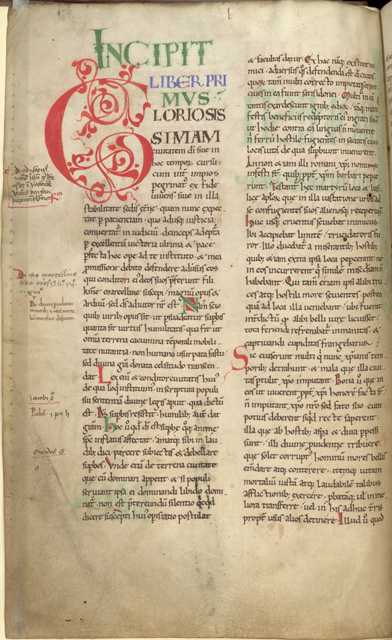
The City of God, 12th Century Manuscript
アウグスティヌスの著作:リスト
アウグスティヌスは、古代キリスト教の重要な教父であり、多くの著作を残しました。
その中でも特に有名なのが『告白』と『神の国』です。『告白』は彼の自伝的作品で、彼の回心の過程や信仰の深まりを描いています。
『神の国』は、ローマ帝国の崩壊とキリスト教の関係を論じたもので、キリスト教思想の根幹に触れる重要な作品です
。その他にも『三位一体論』や『自由意志論』など、神学や哲学に関する多岐にわたる著作を執筆しました。
彼の著作は、後の中世ヨーロッパの思想に多大な影響を与え、現代でも広く読まれています。
特に、彼の原罪や恩寵に関する議論は、カトリック教会のみならず、プロテスタントや正教会にも影響を及ぼしました。
アウグスティヌスの著作を通じて、彼の深い信仰と鋭い洞察力を感じることができるでしょう。
Augustine’s Works: A List
Augustine, a significant figure in ancient Christianity, left behind numerous writings.
Among them, the most notable are “Confessions” and “The City of God.” “Confessions” is his autobiographical work, depicting his journey of conversion and deepening faith.
“The City of God” discusses the relationship between the collapse of the Roman Empire and Christianity, touching upon the essence of Christian thought—a pivotal work.
Additionally, he authored a wide range of works on theology and philosophy, including “On the Trinity” and “On Free Will.”
His writings profoundly influenced medieval European thought and continue to be widely read today.
Especially, his discussions on original sin and grace left a mark not only on the Catholic Church but also on Protestantism and the Eastern Orthodox Church.
Through Augustine’s works, one can sense his profound faith and sharp insights.
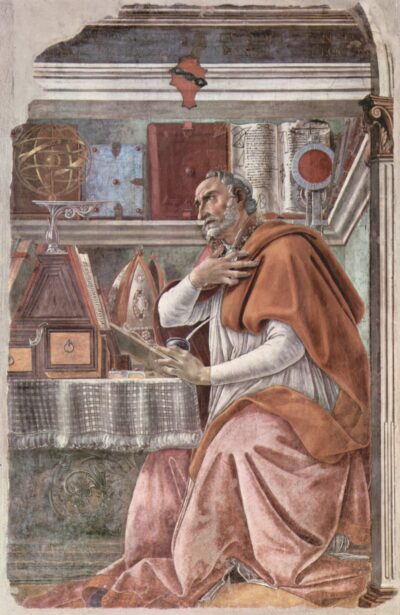
Augustine Botticelli, c.1480
アウグスティヌスの記念日:紹介
アウグスティヌスの記念日は8月28日で、彼の死去を記念しています。
彼は354年にタガステ(現アルジェリア)で生まれ、430年にヒッポで亡くなりました。
アウグスティヌスはキリスト教神学の重要な人物であり、『告白』や『神の国』などの著作で知られています。
特に『告白』は、自身の回心と神への愛を描いた自伝的作品として有名です。
彼の思想は中世ヨーロッパのキリスト教思想に大きな影響を与え、後の神学者たちにも多大な影響を及ぼしました。
アウグスティヌスの母モニカも聖人として崇敬されており、彼女の祈りと献身がアウグスティヌスの回心に大きく寄与したとされています。
記念日には、教会で特別なミサや祈りが捧げられ、彼の教えと生涯が再び思い起こされます。
アウグスティヌスの思想は、信仰と理性の調和を追求するものであり、現代でもその影響は色褪せることがありません。
Augustine’s Commemoration: An Introduction
Augustine’s commemoration falls on August 28th, marking the anniversary of his death.
He was born in 354 in Thagaste (present-day Algeria) and passed away in 430 in Hippo.
Augustine is a significant figure in Christian theology, known for his works such as “Confessions” and “The City of God.”
Especially renowned is “Confessions,” a autobiographical piece depicting his conversion and love for God.
His ideas profoundly influenced medieval European Christian thought and left a lasting impact on later theologians.
Augustine’s mother, Monica, is also revered as a saint, credited with contributing significantly to his conversion through her prayers and devotion.
On his commemoration day, special masses and prayers are offered in churches, recalling his teachings and life once again.
Augustine’s philosophy seeks harmony between faith and reason, a pursuit that continues to resonate in the modern world.
アウグスティヌスの評価:分析
アウグスティヌスは、4世紀末から5世紀初頭にかけて活動した古代キリスト教の教父であり、その思想は後世に大きな影響を与えました。
彼が特に評価されるのは、『告白』や『神の国』といった著作を通じて、キリスト教信仰の深層に迫った点です。
彼の母モニカも聖人として知られ、家族背景も彼の信仰形成に寄与しました。
アウグスティヌスは、テオドシウス1世がキリスト教を国教とした時代に活躍し、正統信仰の確立に貢献しました。
特にラテン語圏での影響力は絶大で、カトリック教会や正教会など多くのキリスト教派で聖人として崇敬されています。
彼の思想は、原罪や恩寵といった神学的概念を深く掘り下げ、後の中世スコラ学や宗教改革にも影響を与えました。
アウグスティヌスの評価は、その深い哲学的洞察と信仰の融合にあり、現代においてもその教えは多くの人々に影響を与え続けています。
Evaluation of Augustine: Analysis
Augustine, an ancient Christian father who flourished from the late 4th to the early 5th century, left a profound impact on later generations with his ideas.
He is particularly esteemed for delving into the depths of Christian faith through works like “Confessions” and “The City of God.”
His mother, Monica, is also recognized as a saint, and her family background contributed to Augustine’s formation of faith.
Augustine thrived during the era when Theodosius I declared Christianity as the state religion, contributing to the establishment of orthodox faith.
His influence, especially in the Latin-speaking world, is immense, with reverence from various Christian denominations like the Catholic Church and the Orthodox Church.
His philosophy delved deep into theological concepts like original sin and grace, influencing later medieval scholasticism and religious reformations.
The evaluation of Augustine lies in the fusion of his profound philosophical insights with faith, and even today, his teachings continue to influence many.
「キリスト教」の用語の解説
キリスト教には、重要な用語がたくさんあります。
中でも、取り分け有名で重要な用語を解説します。
神:キリスト教では、唯一の神を信じ、その神が全知全能で永遠であると考えられていま す。
また、この神は三位一体という形で理解されます。
三位一体:キリスト教の神は三つの位格、すなわち父、子、聖霊から成るとされています。
これら三つは別々の存在ではなく、同一の神の異なる位格あるいは表現であり、神の一体 性と三位性という両方の側面を強調します。
イエス・キリスト:キリスト教の中心的人物で、神の子とされ、救世主と見なされています。
彼の生涯、死、そして復活はキリスト教の教義の中心となっています。
復活:イエスが死後に生き返り、死を打ち破る力を示したという新約聖書の教えです。
このイベントはキリスト教信者にとって非常に重要で、永遠の生命の希望を提供します。
罪:神の法律や道徳的な基準に対する違反。原罪は、アダムとイブがエデンの園で神に背 いた結果、全人類が罪の性質を持つようになったという教えです。
特に重い罪は7つある とされ、傲慢、強欲、嫉妬、憤怒、色欲、暴食、怠惰を7つの大罪と呼びます。
救済:人間が罪から解放され、神との関係が回復し、永遠の生命を得ること。
キリスト教 では、救済はイエス・キリストを通じてのみ得られるとされています。
聖書:キリスト教の聖典。
旧約聖書と新約聖書から成り、神の啓示とされています。
福音:「喜ばしい知らせ」あるいは「良い知らせ」を意味し、イエス・キリストの教えと その救済の働きを指します。
また、新約聖書の一部であるマタイ、マルコ、ルカ、ヨハネ の四つの「福音書」を指すこともあります。
聖餐:または聖体礼儀とも呼ばれ、最後の晩餐を記念する儀式です。
パンとワイン(また はぶどうジュース)がキリストの体と血を象徴し、キリストの死と復活を示します。
教会:キリスト教の信者の共同体を指す。
また、特定の宗派や、信者が集まって礼拝を行 う建物を指すこともあります。
バプテスマ:キリスト教に入る儀式で、水を用いて行われます。
この儀式は、罪の洗い清 めと新しい生命への入門を象徴します。
プロテスタント:16世紀の宗教改革を通じてローマ・カトリック教会から分裂したキリ スト教の教派を指します。
プロテスタントの聖職者は牧師と呼ばれます。
カトリック:普遍的な、または全体的なという意味で、ローマ・カトリック教会を指すこ とが多いです。
ローマ・カトリック教会は、教皇を最高の宗教的権威と見なします。
カト リックの聖職者は神父と呼ばれます。

Augustine’s Tomb
Explanation of Key Terms in Christianity
In Christianity, there are many important terms that hold significant meaning.
Among them, let’s explain some of the most famous and crucial terms:
God: In Christianity, the belief in one God who is considered omnipotent, omniscient, and eternal.
Moreover, this God is understood in the concept of the Trinity.
Trinity: In Christianity, God is believed to consist of three persons: the Father, the Son, and the Holy Spirit.
These three are not separate entities but different persons or manifestations of the same God, emphasizing both the unity and trinity of God.
Jesus Christ: The central figure in Christianity, regarded as the Son of God and the Savior.
His life, death, and resurrection are central tenets of Christian doctrine.
Resurrection: The teaching in the New Testament that Jesus rose from the dead after his crucifixion, demonstrating victory over death.
This event is of utmost importance to Christian believers, offering hope of eternal life.
Sin: Violation of God’s laws or moral standards. Original sin is the doctrine that as a result of Adam and Eve’s disobedience in the Garden of Eden, all humanity inherited a sinful nature.
There are seven particularly grievous sins known as the seven deadly sins: pride, greed, envy, wrath, lust, gluttony, and sloth.
Salvation: The deliverance of humanity from sin, restoration of the relationship with God, and attainment of eternal life.
In Christianity, salvation is believed to be attainable only through Jesus Christ.
Bible: The sacred scripture of Christianity, consisting of the Old Testament and the New Testament, regarded as the revelation of God.
Gospel: Meaning “good news,” it refers to the teachings of Jesus Christ and his work of salvation.
It can also refer to the four Gospels—Matthew, Mark, Luke, and John—that are part of the New Testament.
Eucharist: Also known as the Holy Communion or the Lord’s Supper, it is a ritual commemorating the Last Supper.
Bread and wine (or grape juice) symbolize the body and blood of Christ, representing his death and resurrection.
Church: Refers to the community of believers in Christianity.
It can also refer to a specific denomination or the building where believers gather for worship.
Baptism: A rite of passage into Christianity, typically performed with water.
This ritual symbolizes cleansing from sin and entry into new life.
Protestantism: Refers to the branch of Christianity that emerged from the 16th-century Reformation, breaking away from the Roman Catholic Church.
Protestant clergy are called pastors.
Catholic: Often refers to the Roman Catholic Church, which is universal or comprehensive in nature.
The Roman Catholic Church considers the Pope as the supreme religious authority.
Catholic clergy are called priests.
キリスト教の聖書とは
キリスト教の聖書は、キリスト教の教義と実践の基礎をなす文書で、キリスト教徒にとって最も重要な文書です。
キリスト教の信者は聖書を神の啓示と見なし、その教えを通じて神の意志を理解しようとします。
キリスト教の聖書は、旧約聖書と新約聖書から成り立っています。
旧約聖書は、キリスト教の前身であるユダヤ教の聖典であり、キリスト教が成立する前の時代の神の啓示を記録したものです。
旧約聖書は律法(モーセの五書)、歴史書、詩篇、預言書、知恵文学の五部分から成り立っています。
新約聖書は、キリスト教の成立後の神の啓示を記録したもので、イエス・キリストの生涯、死、復活を記述し、彼の教えと初期のキリスト教共同体の形成を詳述しています。
新約聖書は福音書(マタイ、マルコ、ルカ、ヨハネ)、使徒行伝、使徒の手紙(パウロの手紙と一般的な手紙)、そして黙示録から成り立っています。
聖書の各書はさまざまな時代と文脈でさまざまな著者によって書かれ、その内容は歴史的な記録、法律、詩、預言、教訓、祈り、譬え話など、多岐にわたります。
キリスト教のさまざまな教派や伝統は聖書の解釈について異なる見解を持つことがありますが、全てのキリスト教徒が聖書の権威を認め、世界的なベストセラーとなっています。
What is the Bible in Christianity?
The Bible in Christianity is the foundational document that shapes the doctrines and practices of the religion, making it the most important document for Christians.
Christian believers regard the Bible as divine revelation, seeking to understand God’s will through its teachings.
The Christian Bible consists of the Old Testament and the New Testament.
The Old Testament is the sacred scripture of Judaism, the precursor to Christianity, recording God’s revelations before the establishment of Christianity.
The Old Testament comprises five sections: the Law (the books of Moses), historical books, Psalms, prophetic books, and wisdom literature.
The New Testament records the revelations of God after the establishment of Christianity, describing the life, death, and resurrection of Jesus Christ and detailing his teachings and the formation of early Christian communities.
The New Testament consists of the Gospels (Matthew, Mark, Luke, and John), Acts of the Apostles, the Epistles (letters of Paul and general letters), and Revelation.
Each book of the Bible was written by various authors in different periods and contexts, containing a wide range of content including historical records, laws, poetry, prophecies, teachings, prayers, and parables.
While different Christian denominations and traditions may have varying interpretations of the Bible, all Christians recognize the authority of the Bible, making it a worldwide bestseller.
「イエス・キリスト」とは
イエス・キリストはキリスト教の中心的な人物で、新約聖書に記録されている1世紀のユダヤ教の宗教的指導者です。
彼の教えと行動、そして彼の死と信じられている復活はキリスト教の基礎を形成しています。
イエスは紀元前4年から紀元前6年頃にローマ支配下のユダヤ地方のベツレヘムで生まれました。
彼の母マリアは処女懐胎を経て彼を出産したとされています。
これは、神が人間の形を取って地上に降り立った、すなわち神の化身であるというキリスト教の教義、つまり受肉説の根拠となっています。
イエスは30歳頃から公の宣教活動を始め、奇跡の行いや説教を通じて多くの人々を惹きつけました。
彼の教えは神の愛と慈悲、隣人愛、心の内からの真実の信仰、罪からの回心などでした。
イエスは33歳の時、ローマの総督ポンテオ・ピラトの命令で十字架にかけられて死亡しました。
キリスト教の信者は、彼の死が人類の罪を償うための神の計画の一部であり、その後3日間で彼が死者の中から復活したと信じられています。
Who is Jesus Christ?
Jesus Christ is a central figure in Christianity, depicted as a religious leader in 1st-century Judaism in the New Testament.
His teachings, actions, and believed resurrection form the foundation of Christianity.
Jesus was born in Bethlehem, in the Jewish region under Roman rule, around 4 to 6 BC.
His mother, Mary, is believed to have given birth to him through the virgin birth, a doctrine known as the Incarnation in Christianity, signifying God taking human form and descending to Earth.
Jesus began his public ministry around the age of 30, attracting many people through miracles and preaching.
His teachings focused on God’s love and mercy, love for neighbors, true faith from the heart, and repentance from sin.
At the age of 33, Jesus was crucified by order of the Roman governor Pontius Pilate.
Christian believers hold that his death was part of God’s plan to atone for human sin and believe that he rose from the dead three days later among the dead.
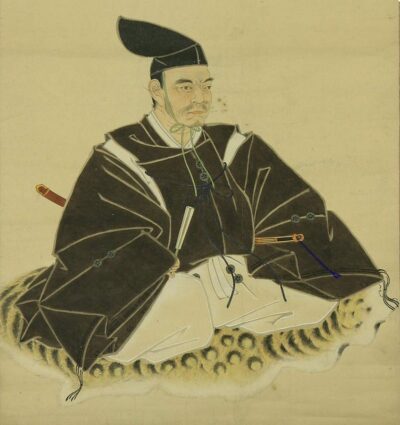
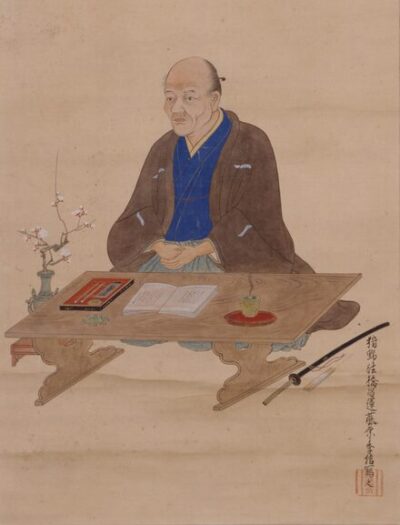
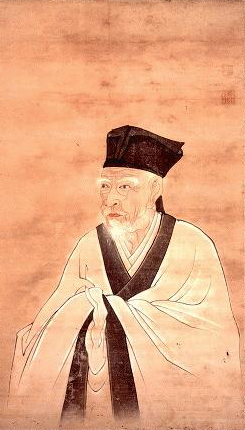
Warning: Undefined variable $comment_form_sns_tags in /home/ktsky/philosophy-kayak.com/public_html/wp-content/themes/shaper/comments.php on line 27